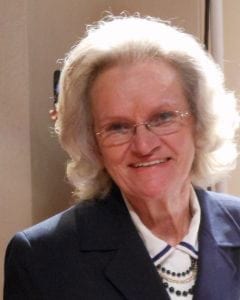Pondering “If only” and “What if “ adds anxiety for rare disease families.
It seems to be a part of human nature that we do a lot of looking back, thinking, “if only” as well as projecting into the future, wondering, “what if.” This type of thinking can bring about added and unnecessary anxiety, especially when trying to deal with a rare disease. But, we have all done it. We can all think of circumstances where we would have done things differently if we had known what the outcome would be.
No matter how much we would like to, there simply is no way to go back and change the past. If there was something we did back then that we would do differently, with the knowledge we have now, we need to accept that. It really is foolish to second-guess ourselves. We can only deal with the present.
Additionally, many of the things we project about never do happen, so we so we tend to worry when we don’t need to, thus creating anxiety.
After all, living with one foot in the past (with regrets about what was or wasn’t done) and one foot in tomorrow (and the fears of what might happen), leaves one with no feet to walk in today. However, anyone who has tried to adopt the concept of living life a-day-at-a-time will say that it can take a lot of practice. Many times growth is a two-steps-forward; one-step-back process.
While raising a daughter with a rare disease, there were heartbreaking times when I thought about what her life would have been like if she didn’t have the disease, but then I looked at all of the different kinds of problems people have with children, parents, siblings, jobs, finances, and a myriad of other things, and I realized that none of us are going to experience life without having problems. There were numerous times when I thought my daughter, Kelley, would not make it another day – even another hour, so I had to learn to leave all of that in God’s hands. It will happen when it happens.
That’s just the way it is sometimes – period.
While we can’t escape from the problems caused by a particular disease, we can learn to live with them. We don’t have to like it. We can learn to live with it. We can’t live in a bubble. We can learn to live in the world. As I look back now, I continue to be amazed at the number of times the right people appeared at the right time to keep Kelley alive much longer than we ever expected. While they haven’t yet found a way to cure the rare disease that finally took her life, they did find ways to make her life better.
It’s good to remember that no one can have every single bad thing happen to them – that would be impossible. Just think about all of the negative situations you hear about on a daily basis. Really, could all of those things happen to one person? Could you be subjected to every disaster, as well as every disease you ever heard of? Of course not. So, why spend any time thinking WOULDA, COULDA, SHOULDA?
Of course, if you knew then what you know now, you would have done it differently… if you could have done so. And maybe you think that you should have known, but it’s not realistic to think that you should have known something that you couldn’t possibly know at the time.
Again, that’s just the way it is sometimes – period.
 About the Author: Denise Crompton and her husband Bob, raised four children, the oldest of whom, Kelley, had the rare disease of Mucolipidosis 3. The many years that they spent caring for Kelley prompted Denise to write two books. Kelley’s Journey: Facing a Rare Disease with Courage chronicles their own daughter’s experiences. Diagnosis: Rare Disease includes some of the experiences of 12 more families, and was written to help raise awareness of all that is involved in living with rare conditions. All of Denise’s royalties go toward rare disease research. The Cromptons live in New Hampshire, where they spend their retirement years enjoying their many grandchildren, while still reaching out to help families with rare diseases.
About the Author: Denise Crompton and her husband Bob, raised four children, the oldest of whom, Kelley, had the rare disease of Mucolipidosis 3. The many years that they spent caring for Kelley prompted Denise to write two books. Kelley’s Journey: Facing a Rare Disease with Courage chronicles their own daughter’s experiences. Diagnosis: Rare Disease includes some of the experiences of 12 more families, and was written to help raise awareness of all that is involved in living with rare conditions. All of Denise’s royalties go toward rare disease research. The Cromptons live in New Hampshire, where they spend their retirement years enjoying their many grandchildren, while still reaching out to help families with rare diseases.


